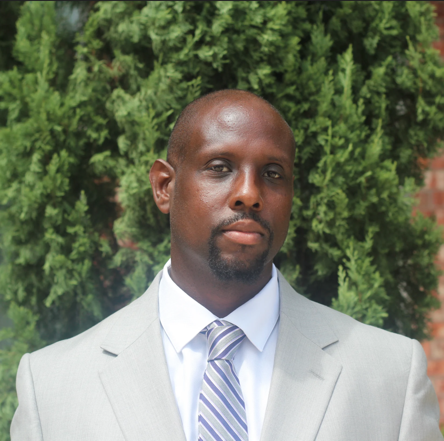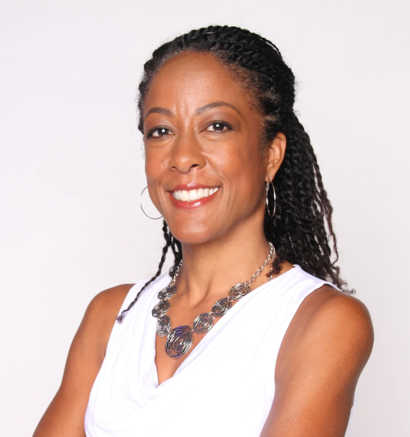The Schiller Institute for Integrated Science and Society at Boston College will host its second major event on environmental racism for the University's Forum on Racial Justice in America titled “Challenging Environmental Racism: Stressful Landscapes, Toxic Exposures, and What One BC Student Is Doing About It,” on Tuesday, February 23, from 4:30-6:00 p.m.
Click here to register for the event.
The event will feature environmental scholars Richard M. Mizelle Jr., and Kimberly L. Jones, as well as BC senior and environmental justice advocate Adin Henderson.
An associate professor of history at the University of Houston and the director of graduate studies in the Department of History, Mizelle’s research has proved that living, working, and even playing in stressful environments takes a significant toll on the bodies of people of color in the United States. He will focus his remarks on stressful landscapes that must be constantly navigated, and the experience of disease and illness that vulnerable groups face from toxic exposure.
The associate dean for research and graduate education at the College of Engineering and Architecture, and professor and chair of the Department of Civil and Environmental Engineering at Howard University, Jones will speak about the water contamination that occurred in Flint, Michigan, toxic landfills, and environmental justice regulations.
A senior in the Environmental Studies program at Boston College, Adin Henderson is the co-president of the Black Student Forum as well as the AHANA+ outreach coordinator for the Student Admission Program. During his time at Boston College, he has combined his advocacy for racial justice with his academic pursuit of environmental issues and environmental justice.
“In honor of Black History month, we extend our examination of environmental racism to look at its historical origins and the legacy that disparate toxic exposures has had on the health and welfare of communities of color. With Adin Henderson’s help, we will call attention to pathways to action as he describes how he has challenged environmental racism in his own life and advises us on how to do the same in ours.”
The event will be co-moderated by Laura Steinberg, Seidner Family Executive Director of the Schiller Institute for Integrated Science and Society, and History Department Professor Conevery Bolton Valencius.
Steinberg said she was pleased to bring two of the nation’s leading environmental scholars to campus to explore the crucial issue of environmental racism.

Laura Steinberg
“The Schiller Institute’s mission is to promote interdisciplinary approaches to significant, pressing societal problems, so we are highly anticipating this very special panel featuring environmental historian Richard Mizelle, environmental engineer Kimberly Jones, and BC’s own Adin Henderson,” said Steinberg.
“Last semester, the Schiller Institute took a sociological and community-action lens to this issue in our December panel. In honor of Black History month, we extend our examination of environmental racism to look at its historical origins and the legacy that disparate toxic exposures has had on the health and welfare of communities of color. With Adin Henderson’s help, we will call attention to pathways to action as he describes how he has challenged environmental racism in his own life and advises us on how to do the same in ours.”
The event is cosponsored by the Schiller Institute for Integrated Science and Society, African and African Diaspora Studies Program, Black Student Forum, Environmental Studies Program, the Engineering Department, and the History Department.
ABOUT THE PANELISTS

Richard M. Mizelle Jr.
Richard McKinley Mizelle Jr.’s research focuses on historical understandings of health and healthcare politics, medical citizenship, environmentalism and health, medical technology, race, gender, and ethnicity in medicine, and the transformation of disease identity. His research has been supported by numerous grants and fellowships, among them the National Humanities Center, Chemical Heritage Foundation, National Institutes of Health, McKnight Foundation, Bates Center for the Study of the History of Nursing, and the American Philosophical Society.
Mizelle is the author of Backwater Blues: The Mississippi Flood of 1927 in the African American Imagination published by the University of Minnesota Press in 2014 and co-editor of Resilience and Opportunity: Lessons from the U.S. Gulf Coast after Katrina and Rita published by the Brookings Institution Press in 2011. He has published in a wide-range of academic and public venues including the Journal of African American History, Open Rivers Journal, and the American Historian Magazine. His research has also been quoted in the New York Times and the New Yorker Magazine. He is currently writing a history of race and diabetes in the twentieth century and co-editing the Oxford Handbook of American Medical History.
Mizelle earned his bachelor’s degree in history from North Carolina Central University, master’s degree in history from American University, and Ph.D. in history from Rutgers University.

Kimberly L. Jones
Kimberly L. Jones’ research interests include water and wastewater quality, environmental policy, membrane separations, global water treatment, environmental justice, risk evaluation and environmental nanotechnology.
She has served on the Chartered Science Advisory Board of the U.S. EPA, where she chaired the Drinking Water Committee and was liaison to the National Drinking Water Advisory Council. She is an alternate commissioner of the Interstate Commission on the Potomac River Basin in Washington, D.C. Jones has served on the Water Science and Technology Board of the National Academy of Sciences, and the Board of Association of Environmental Engineering and Science Professors, where she was secretary of the Board. She has served on several committees of the National Academies of Sciences, Engineering and Medicine. She served as the deputy director of the Keck Center for Nanoscale Materials for Molecular Recognition at Howard University. She also serves on the Center Steering Committee of the Center for the Environmental Implications of Nanotechnology and on the Management Board of the Consortium for Risk Evaluation with Stakeholder Participation.
Jones has received the Researcher of the Year award from Howard University, a Top Women in Science Award from the National Technical Association, the Outstanding Young Civil Engineer award from University of Illinois Department of Civil and Environmental Engineering, a NSF CAREER Award, an Outstanding Leadership and Service and Outstanding Faculty Mentor award from Howard University, and Top Women Achievers award from Essence Magazine.

Adin Henderson
A resident of Newton, Adin Henderson is currently working on an honors thesis, under Professor Andrew Jorgenson, called "The Impact of Socioeconomic Status on Individual Perceptions of Environmental Risk.’
During the summer of 2019, Henderson was a volunteer intern at an environmental non-profit Communities Responding to Extreme Weather. CREW strives to provide marginalized communities that are going to be hit the hardest by climate change with accurate and accessible climate information. In his specific role, he helped CREW revitalize their social media presence. Additionally, Henderson worked with the Massachusetts Library Association to secure more than 50 events for CREW's second annual Climate Preparedness Week.
Jack Dunn | University Communications | February 2021



